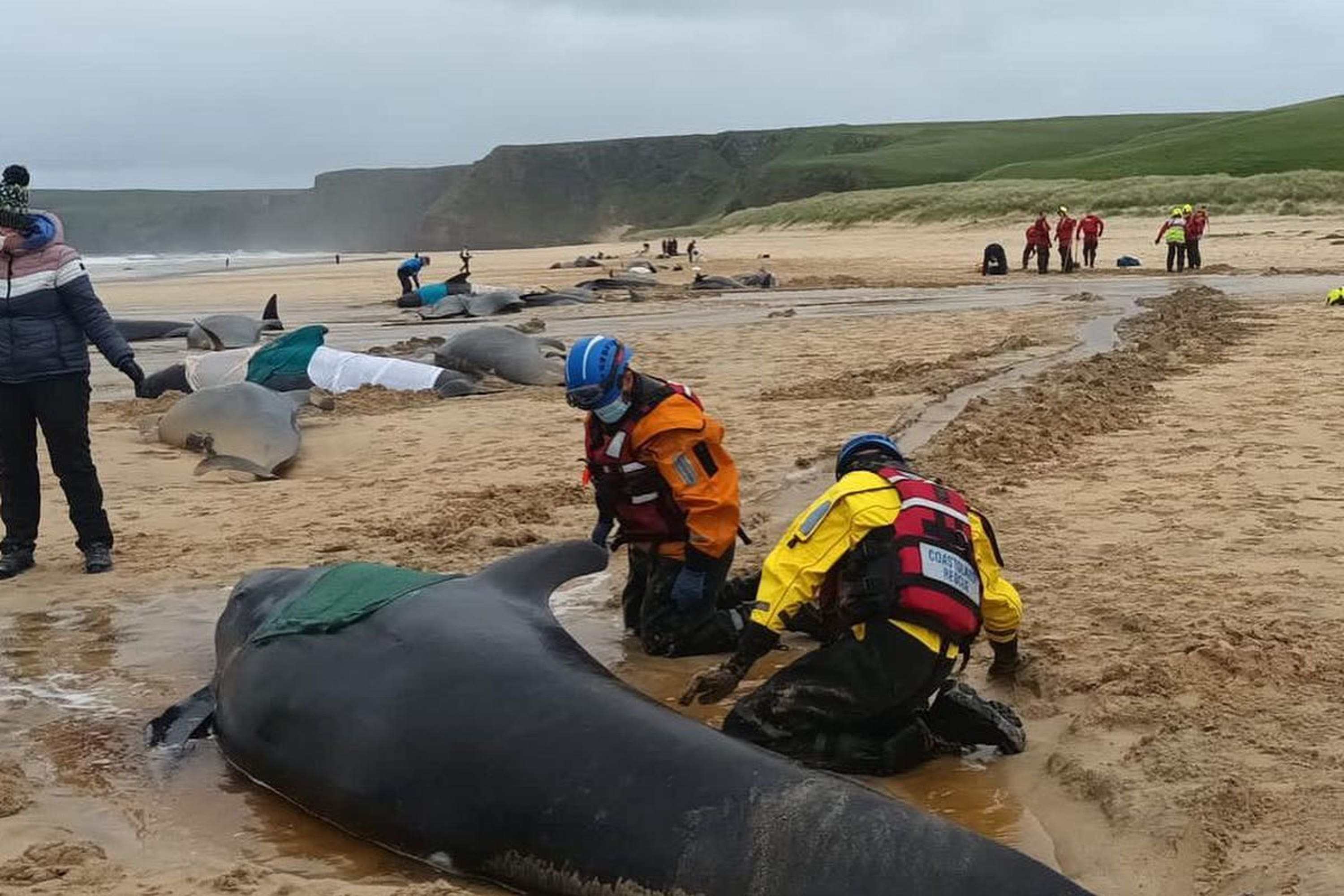Mass pilot whale stranding on Isle of Lewis is ‘biggest one ever in Scotland’ with 55 dead
Post-mortem examinations are due to being on Monday at a landfill site

The mass pilot whale stranding that left 55 animals dead on the Isle of Lewis is the biggest one ever in Scotland, an expert has said.
Marine rescuers were called to the scene at Traigh Mhor in North Tolsta on Sunday at 7am after receiving reports that dozens of mammals were in difficulty.
While initial reports suggested there were around 55 animals consisting of both adults and calves, it was soon discovered that only 15 were still alive.
Speaking on BBC’s Good Morning Scotland, Dr Andrew Brownlow from the Scottish Marine Animal Stranding Scheme (SMASS) said it was one of the biggest mass strandings the organisation has ever dealt with.
Dr Brownlow said: “In terms of the number of casualty animals, this is the biggest one we’ve had. This is one of the biggest pilot whale mass strandings we’ve ever dealt with.”
Attempts were made to re-float two of the most active whales but by 3.30pm on Sunday, it was decided that the remaining whales should be euthanised on welfare grounds.
On Monday, Dr Brownlow will lead efforts to determine the cause of the pod’s death at a landfill site in Stornoway.
While the exact cause is currently unclear, Dr Brownlow said SMASS had a “fairly clear idea” the whales could have come onto a “very shallow” beach in quite bad weather.
He added: “Because they’re pilot whales, they form very strong social bonds.
“So if one animal goes on to the beach for whatever reason then it can be that the entire pod will follow and that is basically what happened in this case.”
Dr Brownlow said there was still a backlog of post-mortem examinations to take place on animals from previous mass strandings and that determining the cause of death will be a “monumental task”.
He said: “What we will try and do is triage these animals.
“We will select the animals we think best represent the rest of the pod and make sure we take samples and as much data from those as we can. Then it’s simply a race against time, energy and weather.
“We will do the most we possibly can to find out what’s going on here.”
Following post-mortem examinations, Dr Brownlow said the whales would be buried.
Subscribe to Independent Premium to bookmark this article
Want to bookmark your favourite articles and stories to read or reference later? Start your Independent Premium subscription today.

Join our commenting forum
Join thought-provoking conversations, follow other Independent readers and see their replies